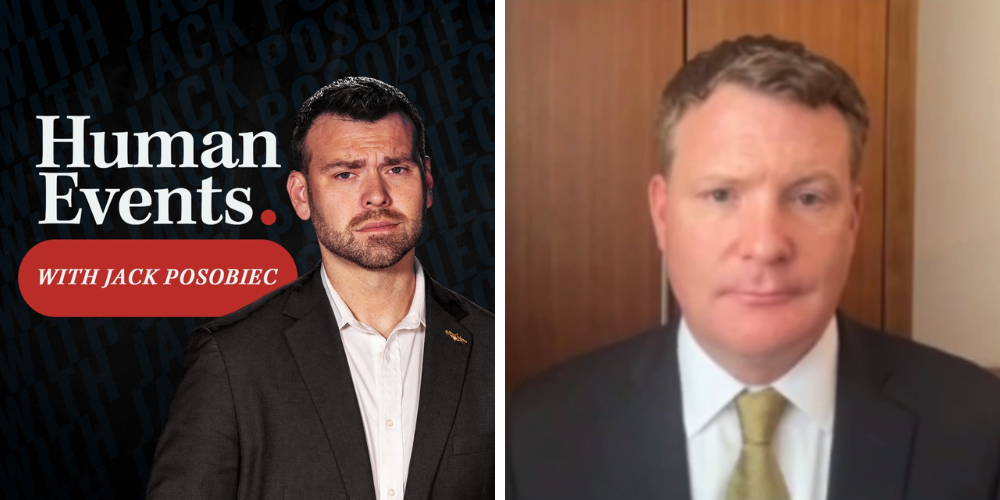The fatwa denounces Islamic extremism. Or does it?
The Fiqh Council of North America (FCNA) issued the fatwa - a religious decree - announced at a press conference held by the Council on American-Islamic Relations (CAIR). The fatwa, in part, said, "Islam strictly condemns religious extremism and the use of violence against innocent lives [emphasis added]. There is no justification in Islam for extremism or terrorism. Targeting civilians' life and property through suicide bombings or any other method of attack is haram - or forbidden - and those who commit these barbaric acts are criminals, not 'martyrs.' The Qur'an, Islam's revealed text, states: '[W]hoever kills a person [unjustly] . . . it is as though he has killed all mankind. And whoever saves a life, it is as though he had saved all mankind' [Qur'an, 5:32]."
The Los Angeles Times, in an Aug. 2, 2005, editorial, nearly fainted with enthusiasm. Under the headline "A Welcome Fatwa," the Times wrote, "A broad group of U.S. and Canadian Muslim scholars and religious leaders last week issued a fatwa that is as unequivocally anti-violence as those of Khomeini or Osama bin Laden were pro-murder." Unequivocally anti-violence?
The Times also noted that "Similar, if less sweeping, edicts have been issued by British and Spanish clerics in the wake of the attacks in those countries."
But the newspaper also took the opportunity, of course, to take a whack at the Bush administration for its lack of enthusiasm over the fatwa: "The U.S. is safer for their efforts, but the government has been curiously reticent to acknowledge and praise the anti-terror cooperation of Muslim organizations." No, the Bush administration took greater care in analyzing this supposedly powerful fatwa. They read the not-so-fine print.
For starters, the fatwa never defines "innocent lives" and condemns killing someone "unjustly." This represents a hole big enough to drive a Hummer through. Terrorism expert Steven Emerson said:
"It [the fatwa] does not condemn by name any Islamic group or leader. In short, it is a fake fatwa designed merely to deceive the American public into believing that these groups are moderate. In fact, officials of both organizations [FCNA and CAIR] have been directly linked to and associated with Islamic terrorist groups and Islamic extremist organizations. One of them is an unindicted co-conspirator in a current terrorist case; another previous member was a financier to Al-Qaeda."
Some U.S. Muslim leaders, scholars and commentators also saw through the ruse. Omid Safi, who teaches religion at Colgate University, said the fatwa did not go far enough, " . . . I would be more inclined to say there are elements of extremism in many parts of our tradition. Rather than simply saying these are not a part of Islam, I would acknowledge that these trends are there and do away with them."
Muqtedar Khan, author of American Muslims: Bridging Faith and Freedom, said of the fatwa, "They should have been at least specific about events, if not individuals or organizations. They did not condemn al Qaeda or [Osama] bin Laden. It would have had more punch to end all these claims that American Muslims are not doing enough to end terrorism if they had."
What does the Council on American-Islamic Relations say about these critics? Its spokesman, Ibrahim Hooper, said the Council failed to mention persons or groups because "it would have been a laundry list"! Hooper added, "I think you can safely regard anyone listed on the State Department list [of terrorist groups] as included." Such a list might include groups like Hamas. But according to terrorism expert Emerson, "CAIR has repeatedly attacked the prosecutions of Islamic terrorists arrested and/or convicted since 9-11 and has attacked the government's freezing of Islamic terrorist fronts as part of a 'war against Islam' by the United States. CAIR has led protests against the deportation of radical Islamic clerics who have called for Jihad or who have been fundraisers for Hamas."
Since CAIR does not wish to list names, they might consider amending their fatwa, along the following lines:
- It is a sin for a Muslim to kill a non-Muslim, except in self-defense. And Islam is not, we repeat, not, under attack.
- The Israeli-Palestinian struggle represents a dispute between two legitimate nationalist movements. This dispute must be resolved peacefully between the two parties.
-
Islam is not incompatible with democracy.
Short and sweet. No names named. But this statement acknowledges the extremism operating under its name in Islam, and it rejects the idea that the West and the "Zionists" threaten Islam.
Ahmed H. al-Rahim, who teaches Arabic and Islamic studies at Harvard University, urges fellow Muslims worldwide to specifically condemn Islamic religious terrorism: " . . . [W]hat is more shameful is that there are no mass Muslim protests to speak of against terrorism that is committed in our name."
Now, how about a real fatwa?




